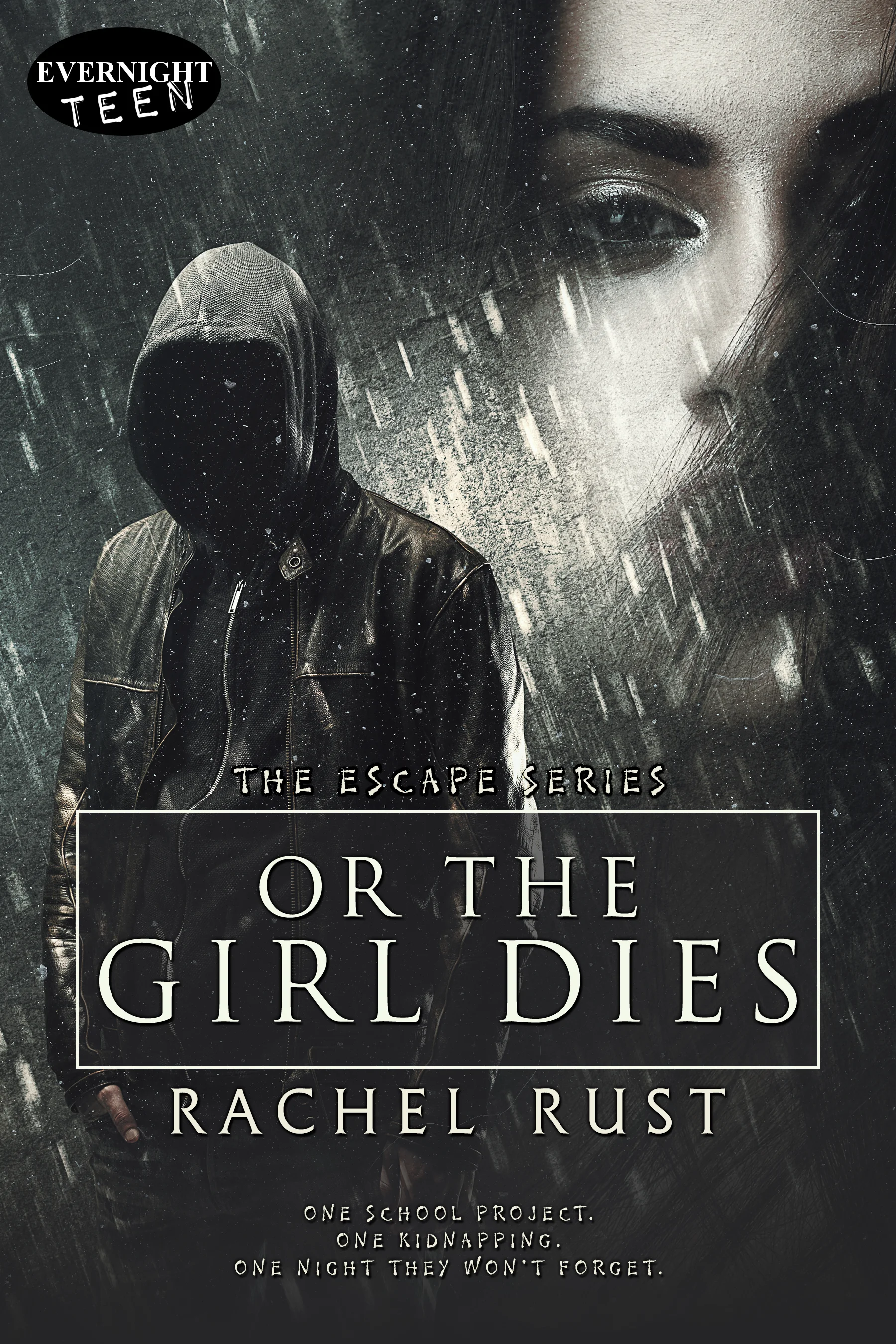Suspense-lover Rachel Rust began writing her first novel in high school, an as-yet-unfinished murder mystery. Now the author of two YA novels, with a third on the way, we chat to her about getting your name out in a crowded market, the importance of beta reader reviews and writing with authenticity.
Please give us a brief overview of yourself and your work.
I have two YA books through Evernight Teen Publishing, All Kinds of Bad, and Or the Girl Dies, The Escape Series #1. My third book, The Watched Girl, The Escape Series #2, is being released May 12, 2017. In both reading and writing, I’m a sucker for anything with suspense, whether a straight-up thriller or a paranormal mystery. Oh, and a little romance doesn’t hurt either.
In my non-writing life, I have a degree in Addiction Studies and work as an addictions counselor. I also have a patient husband, two teen daughters, and a hyperactive chug (Chihuahua/pug).
What made you want to be a writer?
I’ve always had a rambling imagination and wrote my first short story back in first grade—a little tale of a made-up animal (it was a cross between a monkey and koala, and it could speak. Looking back, that seems really creepy!). In fifth grade, my teacher, Mrs. Grotjohn, had our class write and “publish” stories in plastic binders, and then we read them aloud for the class. From that point on, my love of writing took off. I began my first novel in high school—a murder mystery—which remains unfinished, but I still have the file and would love to complete it some day!
What inspires you to write?
Anything and everything, really. A funny conversation, a song on the radio, a hard life experience. Inspiration is all around.
Is there any particular incident that has happened along your writing journey that you’d like to share?
While on my own writing journey, I learned that writing is a family affair. My mother has now written a nonfiction book, and my grandmother is working on a memoir.
Do you have any advice for aspiring authors?
I’m always careful about giving advice, but here are some things I have found helpful:
- Read a lot and write a lot.
- Don’t worry about how ugly the first draft is, just finish it. Editing comes later.
- Beta readers are invaluable and can spot plot holes you don’t notice (even when they’re the size of Jupiter).
- Prepare for rejection, but also don’t be afraid to say no if an offer comes through and it doesn’t feel right. I turned down agent representation along the way because it didn’t seem like a good fit. It was difficult at the time, but now I know it was the right move. You are your best advocate, so make sure you’re comfortable with your agent/publisher.
- Celebrate like crazy when the right offer does come through.
Any advice for approaching publishers?
Don’t be afraid to approach them, whether it’s through a formal submission or a twitter pitch party. They’re just people like you and me. Put yourself out there and go for it—the worst they will say is no. Also, take advantage of all the querying and submission information online, such as how to write a proper query letter. There are differing opinions on format, but if you educate yourself enough you’ll get a good sense of the basic do’s and don’ts.
What do you think is the biggest marketing challenge for new authors?
The biggest challenge is simply getting your name out there and trying to make yourself stand out in a crowded market.
What methods of book marketing do you find the most effective?
I use a variety of methods, such as social media, ad space on book-related websites, Facebook ads, review sites, and blog interviews. Publishers should do at least some marketing for you, but be prepared to promote yourself.
Facebook ads can be effective in getting your book some exposure, as you can gain a lot of “impressions” with relatively little time, effort, and money. Blog interviews, guest posts, and review sites can create word-of-mouth promo and introduce you to new readers.
I’ve also done fun things like giveaways or having people chose a character’s name. Interactive events like these can draw out new readers and get you more followers on social media and Amazon. Plus, it’s a good way to mingle and build a rapport, to show readers you’re not just a robotic writing machine. :)
How do you handle rejection as a writer?
I feel the sting and focus on other projects until it fades a bit. Once that initial pain dwindles, I then take into consideration any feedback that might have been given by the rejecting party. At times, critical feedback has been useful and has helped me improve my work. Other times, however, it was clear that my work just wasn’t right for that particular person, so I moved on without making any changes.
How do you deal with isolation, as writing is an inherently private exercise?
I have a day job that keeps me interacting with people on a regular basis, so that helps a lot. However, it’s not always physical or social isolation that affects writers, it’s the isolation of being misunderstood—of feeling alone, even if we’re not technically alone. Sometimes the non-writers among us might not “get” what it is we do, or they don’t understand that staring at the wall and daydreaming is a legitimate part of the creative process. Connecting with other authors, through social media or local events, is helpful in dealing with the ups and downs of writing and publishing.
Is there anything else you’d like to share with aspiring writers?
Write for yourself before any others. Write what you love and what motivates you. There’s an authenticity that emerges when we allow ourselves to tell the stories we want to tell, the way we want to tell them.
You can find out more about Rachel's work via her website, Amazon or via her social media channels: Facebook, Twitter and Instagram.













